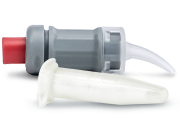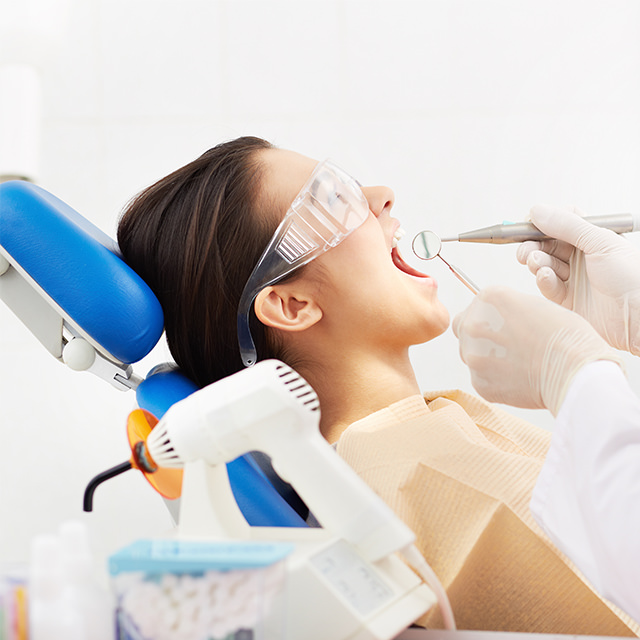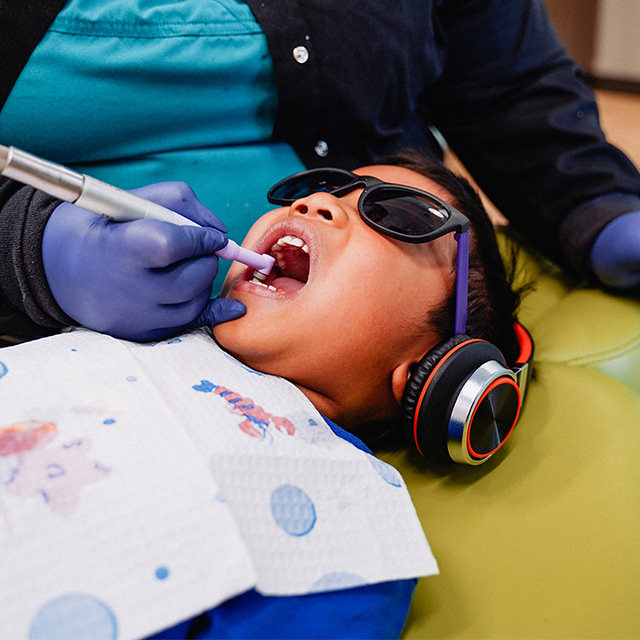
On March 16, 2020, President Donald Trump issued guidance on 30 days to slow the spread of the coronavirus. It is now projected that 100,000-240,000 Americans will die due to the novel virus. The stay at home order has impacted many businesses financially, and many dentists are looking for ways to ensure their practice remains viable when life begins to return to normal. Recently congress passed the CARES Act, which has made grants and low-interest loans available for individuals and small business owners. There are many financial opportunities for dentists to consider during this time.
Listen to the full podcast now: Financial Opportunities for Dental Offices with Paul Donnelly, CPA
Apply for Unemployment
During this time the government has passed legislation to increase unemployment benefits for employees that are making less than $60,000. The employee will benefit by being able to have a steady flow of income that will be able to allow them to stay financially viable at home. It will also help the dental practice as the employee will not be on the payroll. Dentists and practice owners should check with their Certified Professional Accountant (CPA) to see if they are eligible for unemployment. It will depend on how the organization is set up, and if the employee paid the unemployment tax. Some states are freezing rate increases for cases of unemployment associated with the coronavirus pandemic.
Reduce Ongoing Expenses
One financial opportunity for dentist to consider is contacting lenders to see if loan payments can be deferred, or if interest-only payments can be made during this time. Most lenders will provide 30 to 60 days of relief. Dentists can also consider reducing ongoing expenses that are not necessary during the time they remain closed. Keep in mind some services, such as recall reminders and security backups are important to the ongoing success of the office. Offices that have a lease can contact their landlord to see if rent payments can be delayed or reduced to be paid at a later date.
During this time it is best to maximize cash flow. Offices can consider continuing to seeing emergency patients, practice teledentistry, and attempt to collect money from accounts receivable.
Economic Injury Disaster Loans
Consider applying for the Economic Injury Disaster Loan (EIDL). The loan provides 10 Billion in economic stimulus to small businesses. The application became available the week of March 23,2020. A new online application was released on Monday, March 30, 2020 to streamline the process of applying for assistance. If one does not have an ID number it is advised that one reapplies online. EIDL is an un-guaranteed and unsecured loan, meaning there is not a personal guarantee or collateral (for loans under $25,000). The first $10,000 is given as a grant and maybe forgiven as long as it is used for overhead items at the office. It is expected that those that have filled out the application should be funded within three days. Dentists that are classified as a 1099 are able to apply for the loan.
- Up to $200,000 without a personal guarantee.
- 3.75% Fixed Interest Rate
- 10 Year Loan
- The SBA will Determine the Amount Available
EIDL Loan Application: Apply Now
Paycheck Protection Program
The Paycheck Protection Program (PPP) loan is given through local banks that are SBA. The PPP is not a grant, but businesses may be eligible for some loan forgiveness if certain criteria are met. Those that receive money from the EIDL will have the amount forgiven deducted from the PPP.
2.5 times a business’ average monthly compensation (capping those making over $100,000)
0.5% Fixed Interest Rate
2 Year Repayment Plan
No payments for 6 months
Through the PPP the following items are eligible to be considered in forgiveness (if other criteria are met as well):
- Payroll Expenses
- Utilities
- Rent
- Interest on prior Debt
For the loan to be forgiven payroll expenses and number of employees must return to normal levels by June 30th, 2020. If a reduced number of staff are brought back, not all of the loan will be forgiven; for example 5 people are employed between to February 15, 2020 to April 26, 2020; and only 4 people are working at the office only 80% of the loan will be forgiven. The remaining 20% will be placed into a loan at 0.5% interest with a two-year term. If one has borrowed the money and doesn’t need it the remaining percent can be paid back to the bank. One limitation that dentists must consider is the time that the office is expected to be at full payroll capacity.
The eight-week period time frame on when the money must be used for expenses is thought to start on the day of funding (otherwise known as the day of origination). Keep in mind that the number of employees and payroll amounts must return to normal by June 30, 2020.
Contact a Local Bank for more information.
Student Loans
The federal government has frozen payments and interest (0.0% interest) on student loans from March 13, 2020 until September 30, 2020. Loans that are owned by commercial lenders are not eligible for this benefit (ie if a loan was refinanced to a third party, or is owned by a commercial entity). Any payment made between March 13, 2020 and September 30, 2020 can be refunded to the payer.
Employers may also consider that $5,200 can be given to an employee tax-free as a benefit. One caveat is that all employees must be eligible for the benefit. Such that if a dental assistant, dental hygienist, or office manager has student debt they should be eligible for the same amount that is given to the dental provider. The money must then be applied to student loan debt.
Additional Resources
- EIDL Guide
- PPP Fact Sheet
- US Chamber of Commerce Coronavirus Small Business Guide
- ADA Coronavirus Center for Dentists
Disclaimer: This information is not intended to provide legal advice or replace the advice given by an attorney or accounting expert. It is recommended that any decisions made by an owner or individual are done with consultation with the appropriate professional service.
Paul Donnelly, CPA
Paul Donnelly is a Certified Professional Accountant at Honkam Krueger & Co, P.C.. He has over 30 years of serving the dental and medical industries with services to meet their tax and accounting needs. He also
specializes in dental practice valuations and is a sought-after leader, having conducted the most practice valuations in the State of Iowa.





